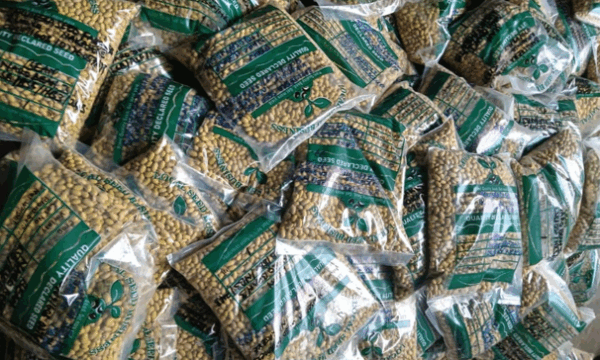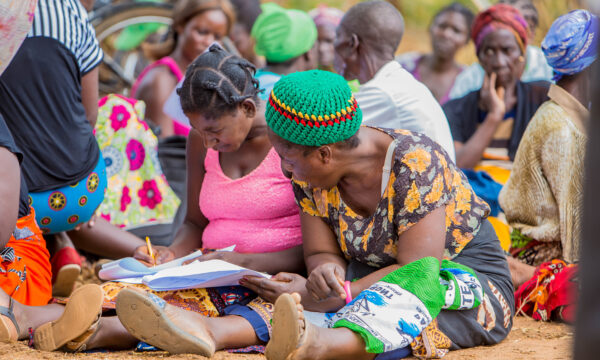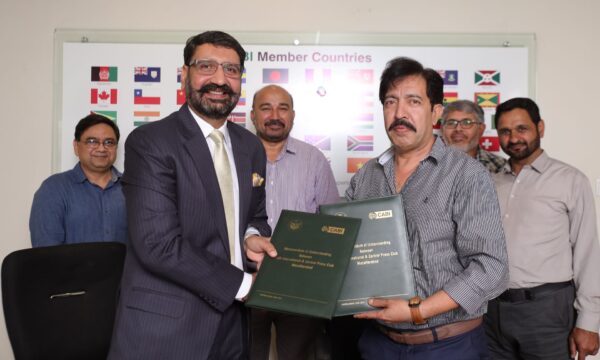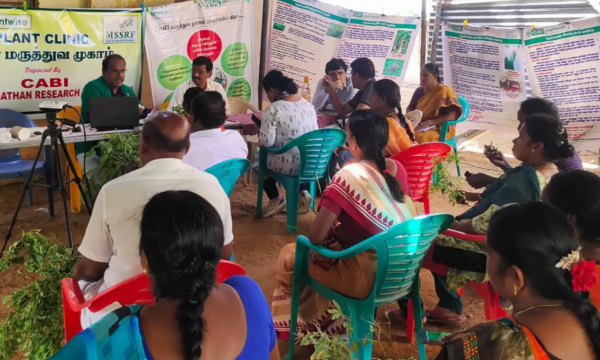Dr Monica Kansiime is one of the Global Team Leaders for CABI’s new global PlantwisePlus Programme. Building on the success over the last ten years of CABI Plantwise, the new programme aims to enable smallholder farmers to increase incomes and grow safer, higher quality food through climate-resilient approaches to crop production.
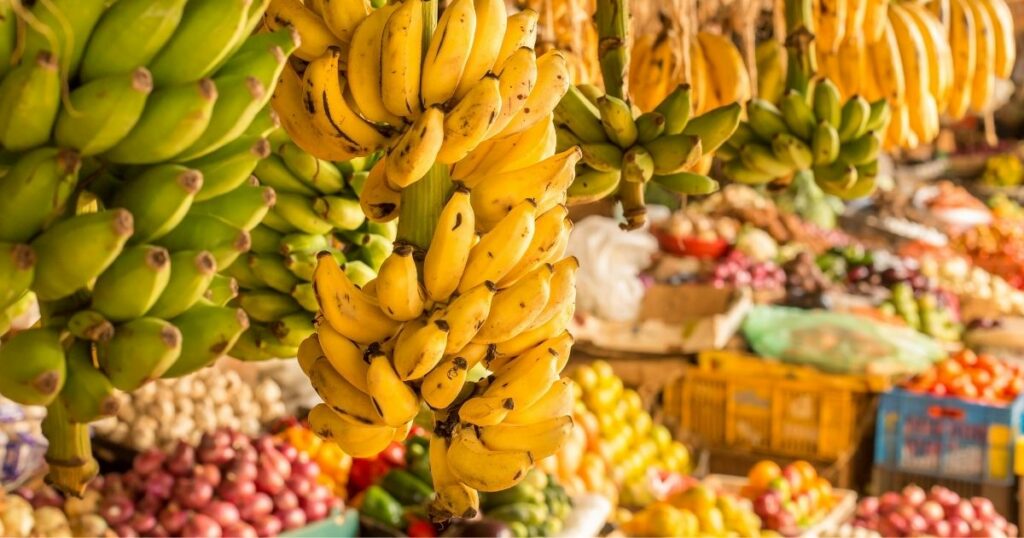
Identifying the challenges
Dr Kansiime’s role within the programme is to identify key safety challenges related to food production. In addition, activities to increase demand for and supply of safer and higher quality farm produce will also be implemented. At least 80% of food consumed in developing regions is grown by smallholder farmers. Raising awareness of agricultural best practice and nutritional information, including safer pesticide use, will help farmers to produce safer, more nutritious food. Not only will this open up new markets to farmers, but local communities will gain access to higher quality, healthier produce.
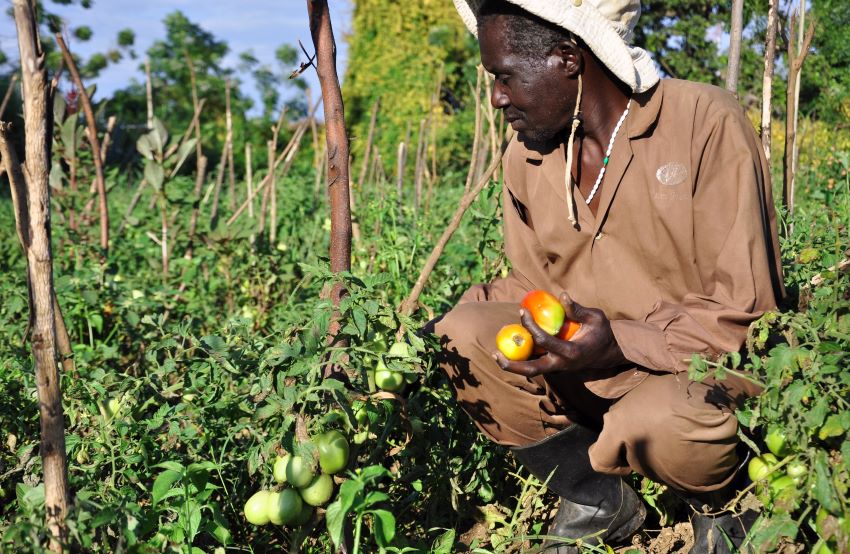
Since joining CABI in 2015 Dr Kansiime has gained extensive experience in the agriculture sector programming, providing strategic leadership, research and development at regional and global levels. She has designed and coordinated objective and high-quality research on identified economic and social issues pertinent to CABI projects/programmes and with regional significance, to facilitate learning, program adaptation and evidence-based programming.
Three key issues
Within this workstream three main issues are being addressed in the initial 3 years of the programme:
1. Increasing local demand for safer produce within selected agricultural value chains,
2. Encouraging farmers to work to a voluntary crop production standard to deliver safer, environmentally friendly produce,
3. Increasing job opportunities for young men and women in rural communities to provide agricultural services to local producers.
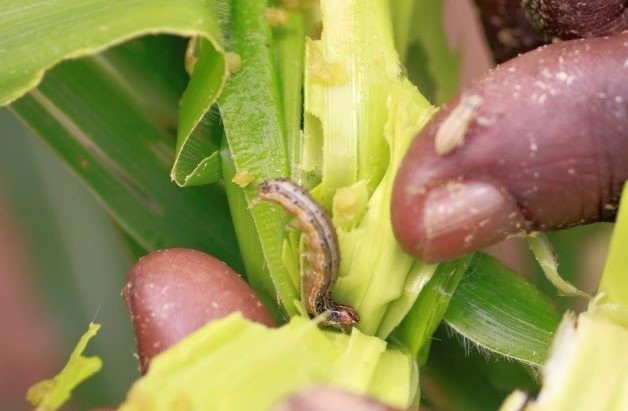
Pesticide use
One of the first steps has been to examine the use of pesticides in rural communities. The increase in devastating crop pests, such as the fall armyworm and tomato pinworm, has led to a growth in pesticide use among smallholder farmers, with a prevalent tendency not to adhere to safety precautions.
Frequent use of synthetic pesticides, combined with limited adherence to safety precautions, can have serious implications on the environment, human and animal health.. Because of the hazards associated with pesticides and the risks that they pose, pesticide life cycles are governed by national, regional and international agreements and regulations.
Literature review
An initial literature review has been conducted by Melanie Bateman, one of the team members, to determine whether there is any evidence of pesticide residues exceeding minimum residue limits (MRLs), particularly in domestic markets, and, if so, which pesticides and on which crops.

Food safety
Concurrently, a situational assessment is being done focusing on Africa and Asia to understand: the context of food safety within the respective countries; factors that contribute to causing the problem; key stakeholders and what is being done already; and gaps. At the same time, a consumer survey will be carried out to understand consumers’ knowledge, judgments, and practices related to food safety, in particular pesticide safety.
Stakeholder engagement
The combined evidence will be used to engage key stakeholders on the subject of pesticide residue levels to encourage both internal and public dialog on the matter. Similarly, engagements with policy makers and farmers will be done to accelerate adoption of practices that support production of higher quality and safer food by reducing the negative effects of pesticide misuse. The information will also support effective risk communication strategies targeting consumers.
About PlantwisePlus
PlantwisePlus is a global programme, led by CABI, to increase incomes and grow safer and higher quality food through sustainable approaches to crop production.
Working in close partnership with relevant actors, PlantwisePlus strengthens national plant health systems from within, enabling countries to provide farmers with the knowledge they need to lose less and feed more.
CABI gratefully acknowledges the financial support of the Directorate General for International Cooperation (DGIS, Netherlands), the European Commission Directorate General for International Partnerships (INTPA, EU), the UK Foreign, Commonwealth & Development Office (FCDO), the Swiss Agency for Development and Cooperation (SDC), for the PlantwisePlus programme.
For more information visit: https://www.plantwise.org
Facebook: https://www.facebook.com/Plantwise
Twitter: https://twitter.com/CABI_Plantwise (@CABI_Plantwise)
Further reading
Related News & Blogs
How plant clinics are strengthening crop health services in Bangladesh
When the first-ever plant clinic in Bangladesh opened in Dhaka in 2013, it initially faced a lack of interest due to its novelty and limited awareness among farmers. However, it went on to expand, providing advice to over 17,000 farmers and led to the…
2 July 2025

